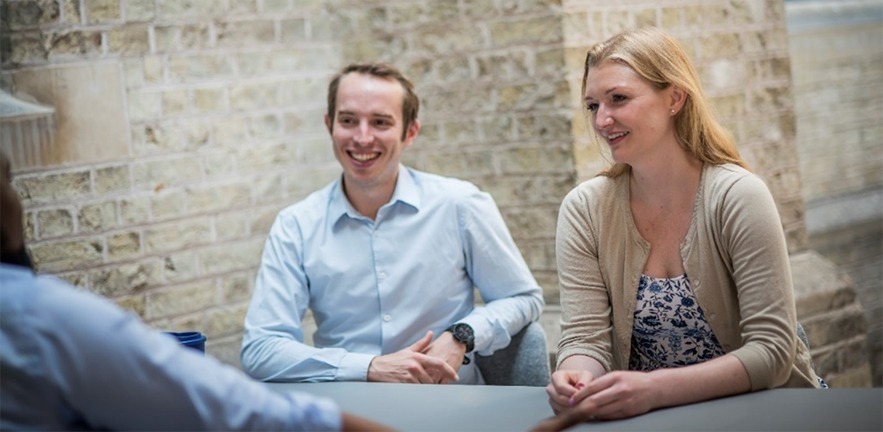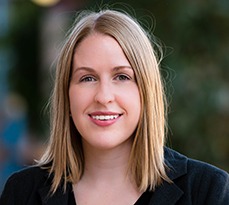Many of those applying to business school use multiple avenues to fund their MBA, so be resourceful and proactive, as well as starting your research early.

Plan your financial capacity early; we recommend exploring financial options at least a year before you intend to start your studies.
So, what are the options for financing your MBA?
1. CJBS and University of Cambridge scholarships
There are a range of scholarships available to Cambridge MBA students, ranging from Cambridge Judge Business School (CJBS) scholarships and University of Cambridge and College scholarships to external funding. However, most support is offered in the earlier rounds, one to three, so you have to be more timely with both your research and your application. Round three for application to the Cambridge MBA Class of 2020 closes on 13 January 2020.
Each year CJBS offers a range of scholarships, attracting top talent from across the globe and covering a wide range of employment sectors, nationalities and geographies. Our scholarships also support the wider Business School initiatives to drive inclusivity and build on the existing diversity across the Cambridge MBA cohort.
Those with strong academics are encouraged to apply in the earlier rounds, to benefit from a range of merit-based MBA scholarships, such as St Catharine’s College Benavitch Scholarship, or the Boustany Foundation MBA Scholarship.
The class of 2019 were awarded 19 scholarships in total, from our Healthcare Scholarship to our Technology and Innovation Scholarship. Continuing this year, is the CJBS ‘Impact in Emerging Markets’ award that includes the regions of both the African sub-continent as well as the wider region of South and Latin America.
You may be eligible for a nationality-based scholarship, even if you are not currently resident in that country.
For sector-based scholarships, you will need to demonstrate dedication to your industry or field and a clear career path in this same sector going forward.
2. External scholarships
There are many external organisations who will contribute towards study for an MBA, and many of these are listed on our website, for example the British Council and Chevening Scholarships. The amount they offer varies, and they are often based on nationality, such as the Fundação Estudar for Brazilian students, and the SIM-You Poh Seng Scholarship for candidates from Singapore.
Based mainly on nationality, the Chevening scholarship funded in partnership with the UK Government, has been supporting talent and study in the UK since 1983. There is no such thing as a ‘typical’ Chevening Scholar, but those who are successful tend to have ambition, leadership potential, and a strong academic background.
Our website lists organisations which have funded MBA students in the past, but it’s not a complete list; so we would recommend you do some research and see what scholarships for MBA candidates are available in your country or industry sector.
3. Company sponsorship
This is still very much a well-trodden route for those wishing to pursue an MBA. Depending on your company, you might wish to start the conversation with your line manager or even directly with the Human Resources department from an early stage. The company funding awarded could be on either a full or part funding basis. In some cases, finding someone in your company who has previously taken an MBA programme and can support your case is a good idea. They may not have been funded themselves but can support the argument for the return on investment overall, and they might even mentor you a little through the subsequent application process.
Also, be realistic – part funding is more common than a full company sponsorship. There is likely to be a written arrangement about returning to the company, for an agreed period of time after completing your MBA. You might wish to ensure there is some flexibility in any ‘return to work contract’ to ensure you have the option to change department, role or even country for that same employer.
4. Local funding options and loans
There may be funding options available in your own region. You should begin your research early, to ensure this piece of the puzzle works smoothly alongside your own MBA application timeline.
Prodigy Finance and Future Finance are both loan providers, that specialise in loans for postgraduate students at leading business schools, including Cambridge Judge. Many Cambridge MBA students fund their MBA studies using one of these loan providers
The University of Cambridge is a recognised education provider, and as such is accepted by many funding bodies such as United States and Canada federal loans.
5. The family framework
Students typically call on family and extended family to support their career transition. It might be that some of the funds, perhaps the equivalent of the reservation fees, could be raised just by those closest to you. Regarding the terms of the payback, that would be completely up to them and yourself, to establish what and when is reasonable, after you complete your studies and return to the workplace. It’s important to remember that MBA graduates continue to command a salary premium relative to direct-from-industry and bachelor’s degree hires.
6. Leveraging your assets
Put your finance plan together and consider having a funding back-up plan. Alongside your wider network of family and friends, you might also look at any assets you could leverage. Taking out a loan against a property, for example, may be feasible if you are planning to work in another country altogether after your MBA, and the initial loan can be offset against future rental values. Over 50 per cent of graduates from Cambridge MBA Class of 2017/18 switched country after their studies; over half of these switched to the UK itself for future employment.
7. Lifestyle changes
Finally, you might consider some lifestyle changes or tweaks which over time (the year it could take planning the start of your MBA studies) could see a sizeable chunk of savings develop. Many students fund themselves at least partly through private savings and prepare for this by building up personal capital before they start the programme.

It is worth remembering that not all funding needs to be in place at the time of your application. It is at the offer acceptance stage that you will need to evidence that you have the funds in place.
Amy Duckworth, Head of MBA Recruitment and Admissions says: “An MBA is a big investment in yourself, in terms of both time and money. It is important to spend time planning how you will fund your studies, as well as preparing for the GMAT and working on your business school applications”.
The MBA Admissions Team are always on hand to advise you on your MBA application journey.

